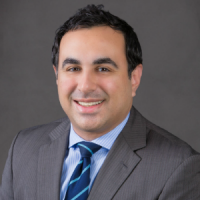I am wondering how safe it is to make an EB-5 investment? I would not want to lose out on $500,000 if something went wrong in the project. Would my EB-5 investment be protected in any way? Would it be safer to make a direct investment over a regional center investment?
Answers

A Olusanjo Omoniyi
Immigration Attorneys DirectoryAn EB-5 investment is usually considered as an investment subject to risk. In essence, there is no guarantee that the investment will not fail and often at times it does fail. In addition, no protection against loss of investment can be guaranteed. Generally, there is no evidence that either a direct investment or a regional center investment is safer than the other. The result you will get from your investment depends on a host of issues: the choice you make, your experience in investment and operation of business, the management and investment choices and strategies of the particular regional center you are considering, just to name a few of the issues you need to consider. Avoid any simple conclusion that labels one form of investment over another. The best decision you can make is to talk to an EB-5 attorney who can discuss at length a host of issues relating to your concern which should include, but are not limited to, all of the issues you raised.

John J Downey
Immigration Attorneys DirectoryAn EB-5 investment should be treated like any other investment; you need to perform due diligence. Seek competent counsel for assistance.

Ed Beshara
Immigration Attorneys DirectoryAn investment adviser or the broker/dealer licensed and registered with the SEC and FINRA, can provide you investment and business advise as to the viability of the project, and then you can make an independent investment decision as to whether to invest in the project.

Michael A Harris, Esq
Immigration Attorneys DirectoryInvestments can vary from project to project, no matter whether they are a regional center project or a direct project. It will be up to you to conduct due diligence on the business feasibility of your investment. You could also hire a financial adviser, business analyst, or a business attorney to review the business plan, including the forecasted financial statements and the reliability of the sources of the business plan. Most immigration attorneys would not advise on the potential success of your investment as we are not typically licensed as financial advisers.

Fredrick W Voigtmann
Immigration Attorneys DirectoryThe EB-5 law and regulations require that your investment be at risk. "At risk" means that your investment is subject to both potential gain and loss. There is no requirement that you bear unreasonable risk or risk that would not make sense from a commercial perspective. You should carefully review your EB-5 investment choices just as you would with any investment. You should consult with financial advisers who can inform you about the potential risks and benefits of any EB-5 investment. Always do the due diligence to make sure that you understand all of the agreements you will sign and that you understand the potential risks involved. If you do not understand the risks or cannot tolerate any risk, then EB-5 might not be for you.

Oliver Huiyue Qiu
Immigration Attorneys DirectoryYou asked the questions lingering in most potential EB-5 investors' minds. To qualify as a "safe" EB-5 project, it should be able to not only deliver the green card as promised, but also allow you to be bought out at the end of the process so you can walk away with your $500,000. Most potential EB-5 investors or their family members are seasoned business persons who would otherwise stay away from risky business in their own country. The rule of thumb in picking an EB-5 project in the United States is to use common sense. If something is too good to be true, then it is most likely not true. To assess the prospect of a project, the better practice is to engage a due diligence search, which could be conducted by a licensed financial adviser, an attorney, an economist or a forensic accountant. Every investor has a different method though. Throughout the process, your immigration attorney should serve as the quarterback and the goalkeeper who can effectively guide you through the process.

Bernard P Wolfsdorf
Immigration Attorneys DirectoryThere are good projects - you must do thorough due diligence.

Salvatore Picataggio
Immigration Attorneys DirectoryWith a direct, the investment is often in a business that the investor manages himself or herself. So if the project fails, there is no one else to blame. Investments are required to be "at risk." No guarantees of the return of the $500,000 can be made by any party related to the project. Even when full lawful permanent residency is achieved, the exit from the investment is generally to sell the interest at fair market value.

Denyse Sabagh
Immigration Attorneys DirectoryIt depends on your situation. If you (and a friend/family/ business partner, if applicable) want to start your own investment, make sure you will hire 10 U.S. workers for at least about five years, speak English, have the experience and skills to operate a business in the United States, and the business will be located in a high unemployment area or a rural area - for the $500,000 investment - you may want to consider a direct investment. If you do not want to have this responsibility yourself or with your friend, business partner or family member, you would want to look at a regional center. All of the investment is at risk. However, many of the regional centers do not release the investment funds until your I-526 is approved. You would want to make sure you do due diligence on the regional center and the particular project to determine if it is viable, a good investment, has prior I-526 applications approved, whether any of the I-526 applications filed with the Immigration Service received a request for additional information, whether any of the applications have been denied, whether any I-829 applications to remove the two year conditional requirement have been been approved/denied, etc. You would want to hire a business consultant or corporate lawyer to do the due diligence on the corporate structure, corporate documents and the business model.

Vaughan de Kirby
Immigration Attorneys DirectoryVery important questions - only go forward with a regional center investment that has been subjected to independent due diligence by a securities professional.

Mona Shah
Immigration Attorneys DirectoryCapital placed in any EB-5 project, whether it is a direct (pooled), regional center or entrepreneurial case, must be at risk. There are three types of projects in EB-5 1. Direct passive, multiple-investor project 2. Regional center passive multiple-investor project and 3. Direct - non-passive (usually the investor's own business). The primary difference is the job creation. If you are trying to save money by filing a direct entrepreneur petition, you will find that you are actually spending much more and with a greater risk. Many small businesses cannot sustain themselves on $500,000 and fail. The requirements of EB-5 are that 10 full time permanent jobs are created and sustained for at least three years. The capital must also be sustained. The cost of 10 employees is far higher than $500,000 and unless the business is very profitable, further investment would be necessary to prevent a loss. The minimum amount is $500,000, which is likely to go up this year. This "lower" amount was placed by Congress in 1990 and is not representative of costs today. The reason pooled projects work (whether they be pooled direct or regional center projects) is because there is more capital. Generally, there is the EB-5 capital as well as the developer's own capital and possibly a bank loan.

Yevgeny Samokhleb
Immigration Attorneys DirectoryAs with most investments, an EB-5 investment is by definition a risk. The law requires it be a risk. Guarantees or payback promises of any kind by the project to you are illegal and would render your EB-5 petition non-approvable. Some projects are more riskier than others. You have to research each project adequately and pick one which you feel is the safest. A direct investment would put the risk into your own hands, as you would have control over the project, but that would require you to be actively involved with it.

Dale Schwartz
Immigration Attorneys DirectoryYour money in an EB-5 project is always at risk. There are some regional centers which are very, very safe to invest in. Others are very speculative and you could lose your money and your green card!

Ian E Scott
Immigration Attorneys DirectoryWhen investing in an EB-5 regional center (or direct investment), your capital must be subject to risk of loss. The investment is like any other investment and you should apply the same due diligence and risk assessment that you would apply for buying any security. Many who invest in a regional center do so because they do not want to manage their own businesses and do not mind a low or negative return. Direct investment usually attracts clients that want to manage an enterprise and who want to have more say and control over their investment.
DISCLAIMER: the information found on this website is intended to be general information; it is not legal or financial advice. Specific legal or financial advice can only be given by a licensed professional with full knowledge of all the facts and circumstances of your particular situation. You should seek consultation with legal, immigration, and financial experts prior to participating in the EB-5 program. Posting a question on this website does not create an attorney-client relationship. All questions you post will be available to the public: do not include confidential information in your question.






